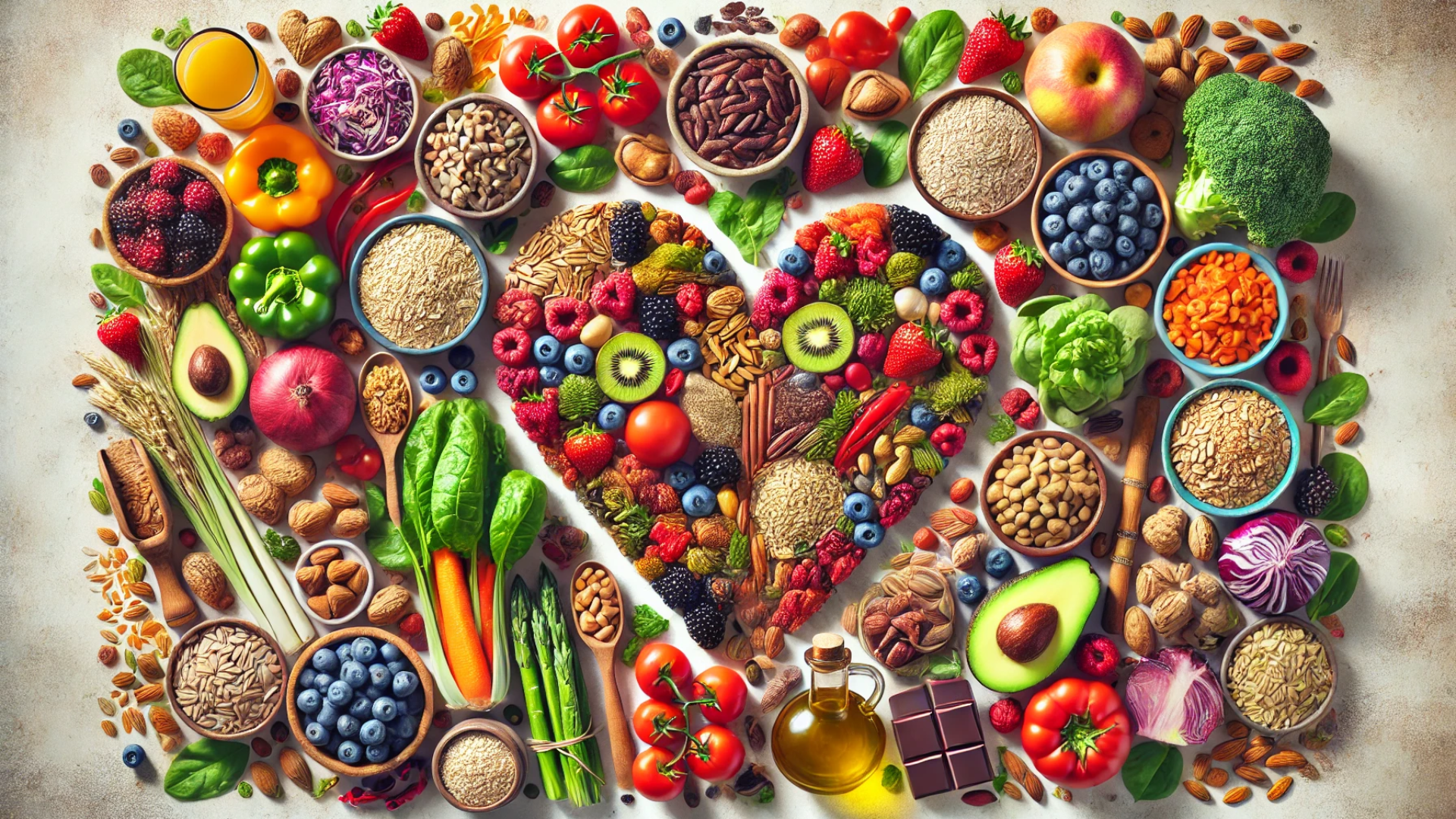
Heart disease is one of the leading causes of death worldwide, but the good news is that many cases are preventable through diet and lifestyle changes. One of the simplest yet most effective ways to improve your heart health is by making smart food choices. In this article, we’ll dive into the best foods you should eat to support cardiovascular health and how they benefit your body. Let’s make heart-healthy eating a breeze!
Whole Grains
Whole grains such as oats, brown rice, quinoa, and whole wheat are rich in fiber, which is key to maintaining a healthy heart. They help lower cholesterol levels and keep blood pressure in check.
Benefits:
- Lowers LDL (bad) cholesterol
- Reduces the risk of coronary heart disease
- Helps control blood sugar levels
How to Include:
- Swap out refined grains like white bread and white rice for whole grains. Start your day with oatmeal or enjoy a quinoa salad for lunch.
Berries
Berries, including strawberries, blueberries, and raspberries, are not only delicious but also loaded with antioxidants, vitamins, and fiber. These little powerhouses can improve heart health by reducing inflammation and oxidative stress.
Benefits:
- Lowers blood pressure
- Decreases bad cholesterol
- Reduces the risk of heart attack
How to Include:
- Add berries to your breakfast, like in yogurt or oatmeal. They also make a great snack or dessert.
Leafy Green Vegetables
Leafy greens like spinach, kale, and Swiss chard are packed with vitamins, minerals, and antioxidants. They are particularly high in vitamin K, which helps protect your arteries and promote proper blood clotting.
Benefits:
- Lowers blood pressure
- Improves arterial function
- Reduces the risk of heart disease
How to Include:
- Include a variety of leafy greens in salads, smoothies, or sautéed as a side dish.
Nuts
Nuts like almonds, walnuts, and pistachios are great for your heart. They contain healthy fats, fiber, and protein, which help reduce inflammation and lower cholesterol.
Benefits:
- Lowers LDL cholesterol
- Improves blood vessel function
- Reduces the risk of heart disease
How to Include:
- Enjoy a handful of nuts as a snack, add them to salads, or use nut butters as a spread.
Avocados
Avocados are a fantastic source of monounsaturated fats, which are heart-healthy and can help lower cholesterol levels. They also provide potassium, a mineral that’s essential for blood pressure control.
Benefits:
- Lowers bad cholesterol
- Increases good cholesterol (HDL)
- Helps control blood pressure
How to Include:
- Spread avocado on toast, add it to salads, or use it as a creamy addition to smoothies.
Olive Oil
Olive oil, especially extra virgin olive oil, is rich in monounsaturated fats and antioxidants. It’s a staple of the Mediterranean diet, which is known for its heart-protective effects.
Benefits:
- Lowers LDL cholesterol
- Reduces oxidative damage
- Decreases the risk of heart disease
How to Include:
- Use olive oil as your primary cooking oil, drizzle it over salads, or dip whole grain bread in it.
Beans and Legumes
Beans and legumes, like lentils, chickpeas, and black beans, are excellent sources of plant-based protein and fiber. They help reduce bad cholesterol and improve heart health.
Benefits:
- Lowers cholesterol
- Helps control blood sugar levels
- Reduces blood pressure
How to Include:
- Incorporate beans into soups, stews, salads, or as a meat substitute in various dishes.
Dark Chocolate
Yes, you read that right—dark chocolate can be good for your heart! It’s rich in flavonoids, which are antioxidants that help reduce inflammation and lower the risk of heart disease.
Benefits:
- Lowers blood pressure
- Improves blood flow
- Reduces the risk of heart disease
How to Include:
- Opt for dark chocolate with at least 70% cocoa content. Enjoy a small square as a treat.
Tomatoes
Tomatoes are rich in lycopene, an antioxidant linked to many health benefits, including reduced heart disease risk. They also provide potassium, which is vital for heart health.
Benefits:
- Lowers cholesterol
- Reduces blood pressure
- Decreases the risk of heart disease
How to Include:
- Add fresh tomatoes to salads, sandwiches, or cook them into sauces.
Foods That Make Your Brain Function Stronger
FAQs
Q: How much of these foods should I eat daily?
A: It varies depending on the food, but generally, aim to include a variety of these heart-healthy options in your daily meals. Moderation and balance are key.
Q: Can I improve my heart health just by eating these foods?
A: Diet is a big part of heart health, but regular exercise, avoiding smoking, and managing stress are also crucial.
Q: Are there any foods I should avoid for better heart health?
A: Yes, try to limit saturated fats, trans fats, added sugars, and excessive salt. Processed foods, red meat, and sugary beverages should also be consumed in moderation.
Wrapping Up
Taking care of your heart doesn’t have to be complicated. By including these heart-healthy foods in your diet, you’re taking a big step toward reducing the risk of cardiovascular disease. Remember, it’s all about making consistent, healthy choices. Here’s to a happy, healthy heart!

